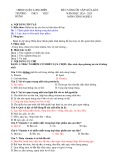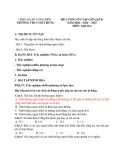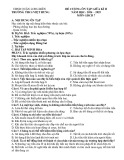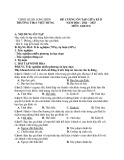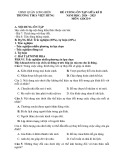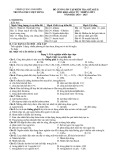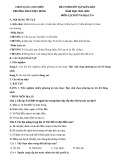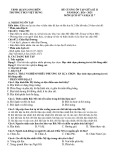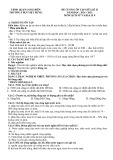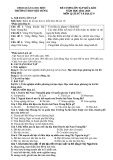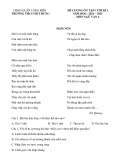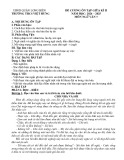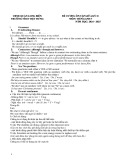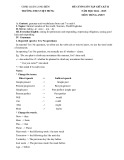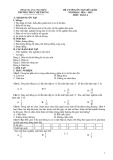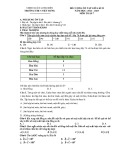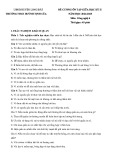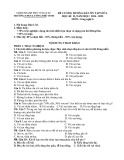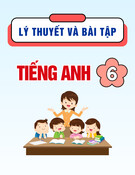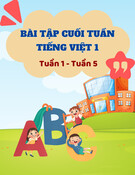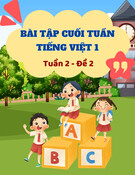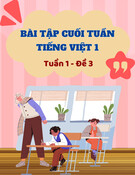
1
UBND THÀNH PHỐ VŨNG TÀU
TRƯỜNG THCS LƯƠNG THẾ VINH
TỔ TIẾNG ANH
----------
ĐỀ CƯƠNG ÔN THI GIỮA HỌC KỲ II
TIẾNG ANH 8 - NĂM HỌC 2023-2024
-------------------------
I. USE OF ENGLISH
A. VOCABULARY
1. To save our Earth, I use cloth bags for shopping, not ________ ones.
A. green B. paper C. cheap D. plastic
2. In my family, we put food waste and objects for ________ in different bins.
A. purchasing B. recycling C. releasing D. reducing
3. An example of ________ is the forest in which all the plants and animals work to form a suitable
habitat for all.
A. habitat B. area C. ecosystem D. condition
4. People all over the world are working to help save ________ animals from extinction.
A. dangerous B. endangered C. single-use D. national
5. Around 8.7 million ________ of plants and animals exist on Earth.
A. means B. classes C. styles D. species
6. The family sells their ________ vegetables at the local market.
A. home-grown B. home-made C. man-made D. convenient
7. I don’t know how to ________ for lower prices, so I shop in supermarkets as they have fixed prices.
A. browse B. bargain C. discuss D. pay
8. As a ________, Jane spends too much time and money shopping.
A. shopaholic B. shopkeeper C. shop assistant D. customer
9. Take your student card with you, you will get a ________ of 30%.
A. sale B. bargain C. decrease D. discount
10. A(n) ________ is a small shop that sells food, drinks, etc. and is usually open until late.
A. convenience store B. farmers’ market C. open-air market D. supermarket
11. A(n) ________ can save you in life-threatening situations because its sound can attract people’s
attention.
A. whistle B. emergency kit C. warning D. fear
12. The tornado caused a massive ________ to the town.
A. destruction B. extinction C. danger D. property
13. Last night volcano Maui ________ and the large areas of land were affected.
A. trembled B. erupted C. predicted D. shook
14. A ________ often occurs in the mountainous areas because many trees have been cut down.
A. forest fire B. flood C. tornado D. landslide
15. My province has a ________ system to tell people when there is a danger of a landslide.
A. missing B. violent C. warning D. practical
B. PREPOSITIONS
1. We are going to pick ________ rubbish in the central park this weekend.
2. Recycling single-use products is better than throwing them ________.
3. Shopping centres offer a wide range ________ products to choose ________.





